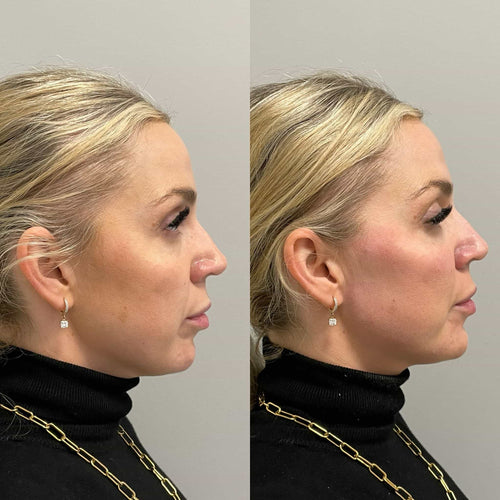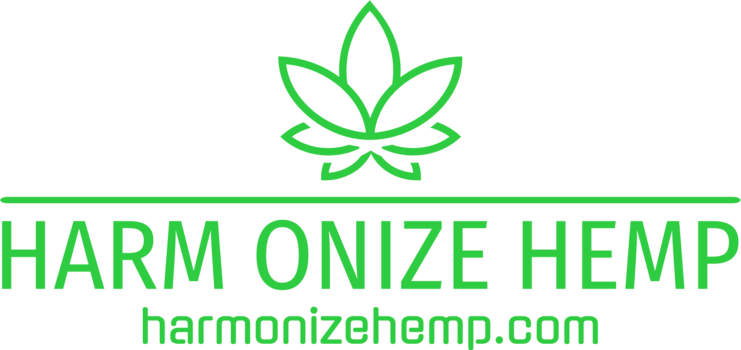Schedule Your Dermal Filler Appointment with Dr. Laura Geige at It’s Me and You Clinic
Immediate Relief
Ice it up
Immediate relief from swelling after lip filler injections can be achieved through several methods, focusing primarily on reducing inflammation and minimizing discomfort.
Here’s a breakdown of immediate steps you can take:
-
Ice It Up: Apply ice packs wrapped in a thin towel to your lips for 20 minutes at a time, taking breaks in between. This helps constrict blood vessels, reducing swelling and numbs the area.
-
Compression: Gently press on your lips with clean hands to minimize fluid buildup. Avoid excessive pressure.
-
Elevate: Keep your head slightly elevated when lying down. This can help drainage and reduce swelling in the facial area.
Remember, these immediate measures are temporary solutions. It takes time for the body to fully process the filler and for swelling to subside completely.
It’s essential to follow your injector’s post-procedure instructions carefully for optimal healing.
Compression is key
Immediate relief after lip filler injections focuses primarily on minimizing swelling and bruising.
Compression plays a crucial role in achieving this.
Here’s why compression is key:
-
Reduces Blood Pooling:
Lip fillers can cause slight bleeding within the tissues. Compression helps prevent blood from pooling, which contributes to swelling and bruising.
-
Limits Fluid Leakage:
The injected filler material can sometimes leak out slightly into surrounding tissues. Gentle compression helps contain this leakage and minimize swelling.
-
Enhances Absorption:
Compression encourages better absorption of the filler by the body, reducing overall inflammation and swelling.
Techniques for Applying Compression:

-
Ice Pack Wrap:
Apply a cold compress or ice pack wrapped in a thin towel to the lips for 15-20 minutes at a time, several times per day. Avoid direct contact with skin to prevent frostbite.
-
Compression Garment:
Wear a lightweight compression garment, such as an elastic bandage or lip wrap, around your lips for several hours after the procedure.
Remember to consult with your injector for specific post-treatment instructions and recommendations for compression.
Elevate your lips
Immediate relief from lip filler swelling can be achieved through several simple steps:
1. **Ice application:** Applying a cold compress or ice pack wrapped in a towel to the swollen area for 10-15 minutes at a time, several times throughout the day, can help constrict blood vessels and reduce inflammation.
2. **Elevation:** Gently elevate your head while sleeping by propping it up with pillows. This helps minimize fluid buildup in the lower face.
3. **Arnica:** Arnica is a natural remedy known for its anti-inflammatory properties. Taking arnica supplements or applying arnica cream topically may help reduce swelling and bruising.
4. Over-the-counter pain relievers:**
Nonsteroidal anti-inflammatory drugs (NSAIDs) like ibuprofen or naproxen can be helpful in reducing pain and inflammation associated with lip filler swelling. However, consult your doctor or pharmacist regarding the appropriate dosage and potential interactions with other medications.
5. **Hydration:** Staying well-hydrated by drinking plenty of water can help flush out toxins and promote healing.
6. **Avoid strenuous activity:** Avoid any activities that could increase blood flow to your face, such as intense exercise or hot yoga, as they may exacerbate swelling.
7. Sleep on your back: Sleeping on your back can help prevent further pressure on the injected area and reduce fluid buildup.
8. **Avoid touching or rubbing:** Resist the urge to touch or rub your lips frequently, as this can irritate the area and potentially delay healing.
Remember that swelling is a normal part of the healing process after lip filler injections.
Medication Management
Over-the-counter pain relievers
Medication management plays a crucial role in minimizing swelling and discomfort after lip filler treatment.
Book Your Dermal Filler Appointment with Dr. Laura Geige Today
Over-the-counter pain relievers, like ibuprofen or naproxen, can effectively reduce inflammation and pain associated with lip fillers.
These medications work by inhibiting the production of prostaglandins, which are chemicals that contribute to swelling and pain.
It’s important to follow the recommended dosage instructions on the medication label and consult with a healthcare professional if you have any underlying medical conditions or concerns.
Additionally, cold compresses applied to the treated area can help constrict blood vessels, further reducing swelling.
Avoiding alcohol and smoking in the days following treatment can also minimize inflammation.
Prescription medications if needed
Medication management plays a crucial role in reducing swelling after lip filler injections. While most swelling subsides naturally within a few days to weeks, certain medications can help minimize its severity and duration.
Over-the-counter (OTC) options like arnica cream or gel can be applied topically to the affected area. Arnica is believed to have anti-inflammatory properties that may reduce swelling and bruising.
In some cases, your doctor might prescribe prescription medications such as:
**Antihistamines:** These medications block the release of histamines, which contribute to inflammation and swelling. Common examples include cetirizine (Zyrtec) or loratadine (Claritin).
**Corticosteroids:** These powerful anti-inflammatory drugs can be administered orally or topically to significantly reduce swelling. Examples include prednisone or hydrocortisone cream.
It is important to consult with your doctor before taking any medication, especially if you have pre-existing medical conditions or are taking other medications. They will assess your individual situation and determine the most appropriate treatment plan for you.
Remember that prompt adherence to your prescribed medication regimen is crucial for maximizing its effectiveness in minimizing post-filler swelling.
Lifestyle Modifications for the Long Haul
Stay hydrated
Staying adequately hydrated is crucial for minimizing swelling after lip filler injections, as well as maintaining overall health and supporting your body’s natural healing processes.
Here are some tips to ensure you’re staying hydrated:
- Drink plenty of water throughout the day, aiming for at least eight glasses or more.
- Choose water over sugary drinks like soda and juice, as they can actually dehydrate you.
- Carry a reusable water bottle with you as a reminder to sip regularly.
- Consider adding natural flavor to your water with slices of cucumber, lemon, or berries.
- Consume hydrating fruits and vegetables such as watermelon, spinach, and cucumbers.
Remember, staying hydrated is an ongoing lifestyle modification that will benefit your overall health and well-being long after the swelling from your lip filler has subsided.
Avoid irritants and allergens
While lip fillers can provide a boost of volume and definition, swelling is a common side effect that can linger for days or even weeks. Minimizing this swelling and promoting quicker healing requires more than just ice packs. Lifestyle modifications play a crucial role in your recovery journey.
One of the most important steps is to avoid irritants and allergens that can exacerbate inflammation. This means staying away from known triggers such as dust mites, pollen, pet dander, smoke (including secondhand smoke), and certain fragrances or chemicals found in cosmetics or cleaning products.
Pay close attention to your diet. Spicy foods, alcohol, and caffeine can all increase blood flow and potentially worsen swelling. Opt for a nutritious diet rich in fruits, vegetables, and water to support healing and reduce inflammation from the inside out.
Hydration is key! Water helps flush toxins from the body and keeps tissues hydrated, which aids in recovery. Aim to drink plenty of water throughout your healing process.
Gentle exercise can promote circulation and reduce swelling, but avoid strenuous activities that could put pressure on the treated area. Light walks or yoga poses can be beneficial without causing irritation.
Finally, prioritize sleep. Your body repairs itself during rest, so aim for 7-8 hours of quality sleep each night to support optimal healing and minimize swelling.
Consult with Dr. Laura Geige for Dermal Fillers Now
Gentle skincare routine
Lifestyle modifications play a crucial role in minimizing swelling after lip filler treatments and promoting long-term results.
**Hydration** is paramount. Drink plenty of water throughout the day to flush out excess fluids and reduce inflammation.
Avoid alcohol and excessive caffeine, as they can dehydrate the body and worsen swelling.
Salt intake should also be minimized, as it can contribute to fluid retention.
Eating a **nutritious diet** rich in antioxidants and anti-inflammatory foods like fruits, vegetables, and omega-3 fatty acids can support healing and reduce swelling.
Getting adequate **sleep** is essential for the body’s natural repair processes.
Refrain from strenuous exercise** or activities that increase heart rate and blood flow to the face immediately after treatment as this can exacerbate swelling.
A gentle skincare routine is vital for post-treatment care. Avoid harsh scrubs, exfoliants, or products containing alcohol, fragrance, or retinoids, which can irritate the treated area.
Cleanse your lips gently with a mild, pH-balanced cleanser twice daily. Apply a **soothing moisturizer** designed for sensitive skin to keep the lips hydrated and protected.
Avoid touching or picking at the lips as this can introduce bacteria and delay healing.
If you experience any unusual symptoms or excessive swelling, consult your healthcare provider immediately.
Press on Honey Ayiti Natives Classy Pleasure The Lady London
- Why Has My Lip Filler Disappeared After 2 Days - November 11, 2025
- What Is The Filler In The Hollow Of Cheeks? - November 9, 2025
- What Are The Best Exercises To Pair With Bum Filler Injections? - November 8, 2025
